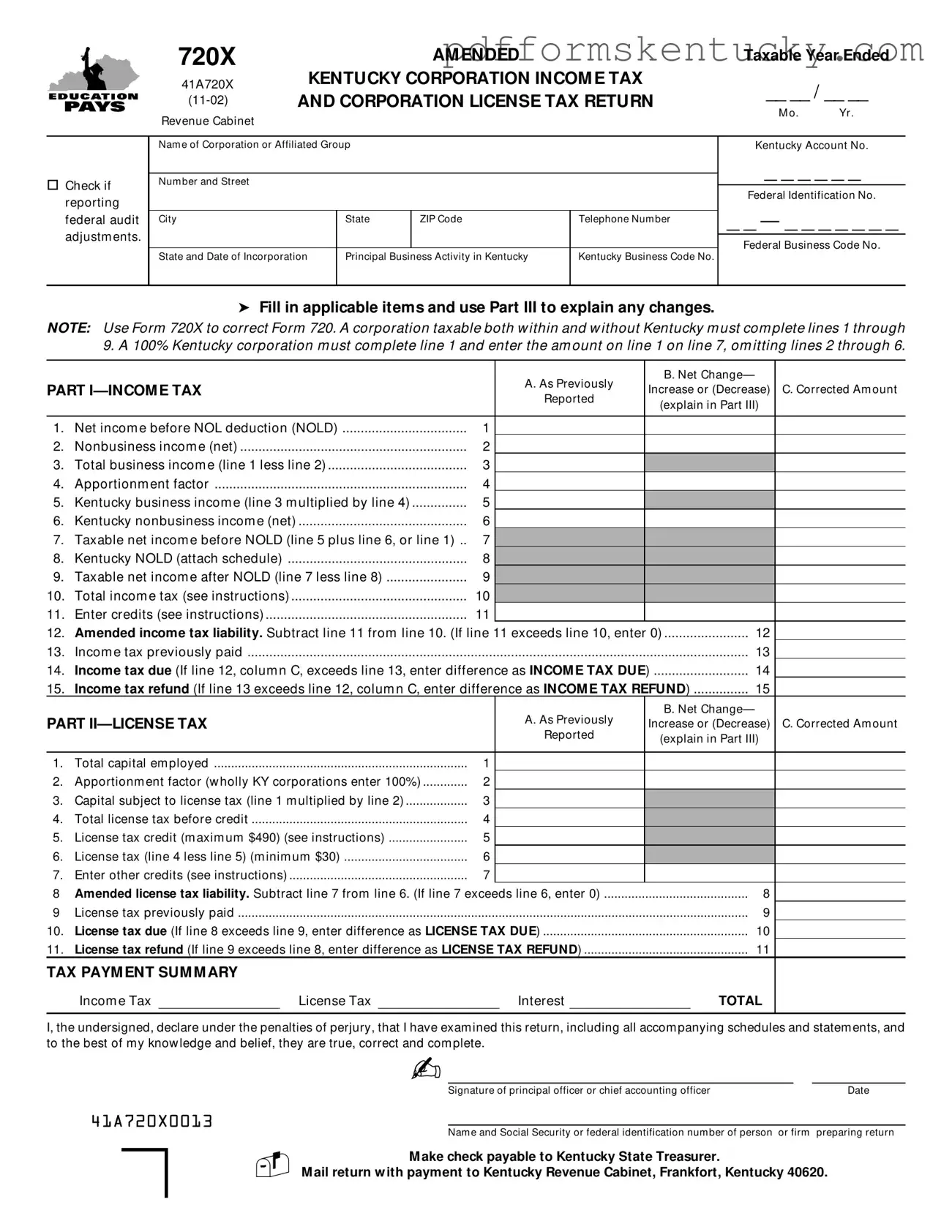Download Kentucky 720X Template
The Kentucky 720X form is an important document used by corporations to amend their income and license tax returns. This form allows businesses to report changes, including adjustments from federal audits, to their previously submitted Kentucky Corporation Income Tax and License Tax Return. Understanding how to properly fill out the 720X can help ensure compliance and avoid potential penalties.
Create My Document Now

Download Kentucky 720X Template
Create My Document Now

Create My Document Now
or
Download Kentucky 720X
Finish the form — you’re almost there
Wrap up your Kentucky 720X online — edit, save, download in minutes.